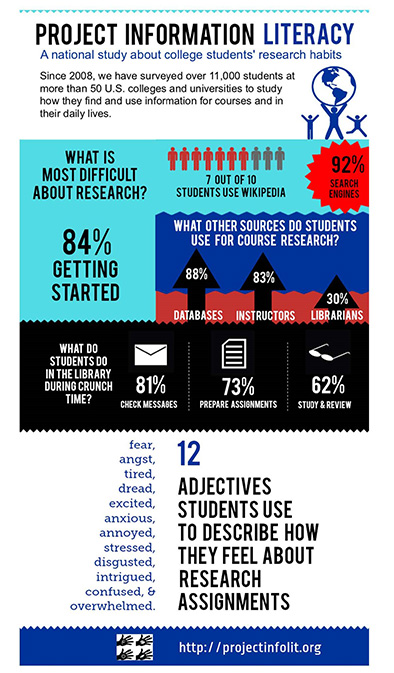Best Practices to Promote Student Engagement in Research
Students spend a lot of their time searching online for information. However, many students have limited research experience. Project Information Literacy conducted a national survey about college students’ research habits:

Download the PDF version of the above image.
Here are some ideas that will help make a research assignment also a successful learning experience:
- Schedule a course-integrated library instruction session.
- Consult with a librarian before making the assignment.
- Put your librarian liaison's name on your syllabus. Contact the library to find out who they are.
- Design your assignment so that students will learn or reinforce skills they can use in the future.
- Important: Complete the assignment yourself before you assign it to your students.
- Make sure the library has the resources your class needs.
- Require students to find, evaluate, and use information in a meaningful and relevant way.
- Divide the assignment into segments to help students stay on track.
- Avoid scavenger hunts. Hunting for obscure facts does not support learning research methods.
- Focus on content rather than format. Online sources may be more appropriate than print sources.
- Avoid the “mob scene.” If many students will have to use the same print materials, put them on reserve.
- Explain the assignment clearly to the students, preferably in writing.
- Define research terms such as “scholarly” or “peer reviewed.”
- Provide students with examples of good assignments and highlight appropriate elements.
- Give students enough time to complete the assignment successfully. Remind students that even under the best circumstances, good research takes time.
- Encourage students to ask for help.
- Encourage students to be critical of all types of sources and evaluate the information they find.